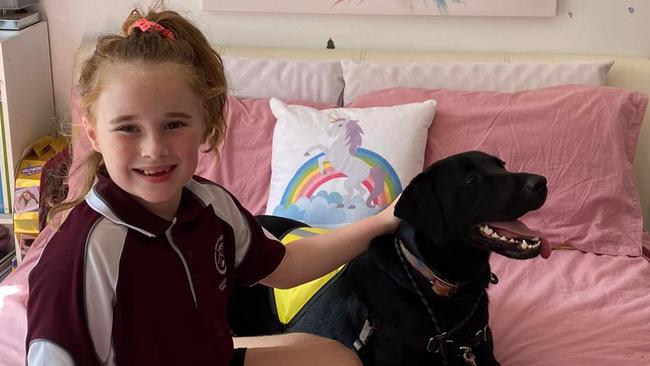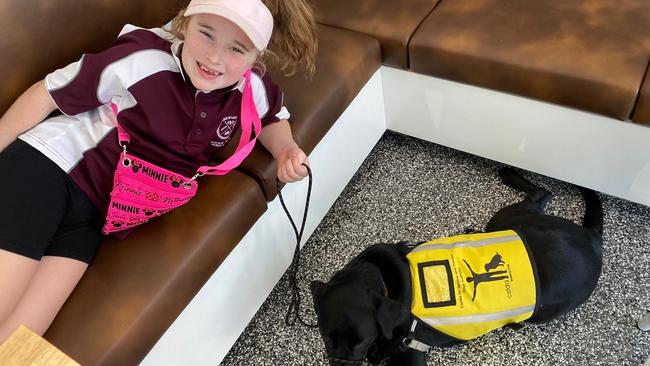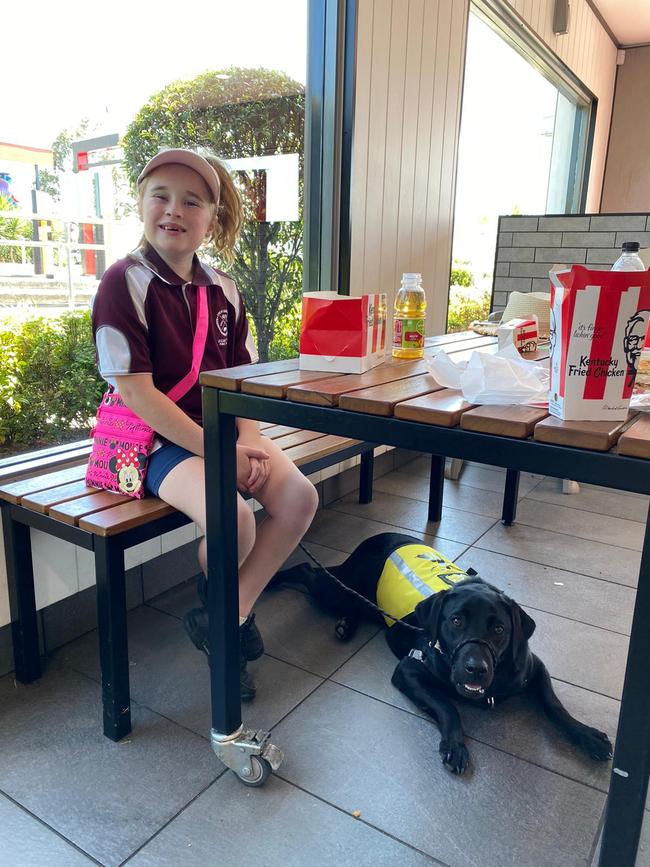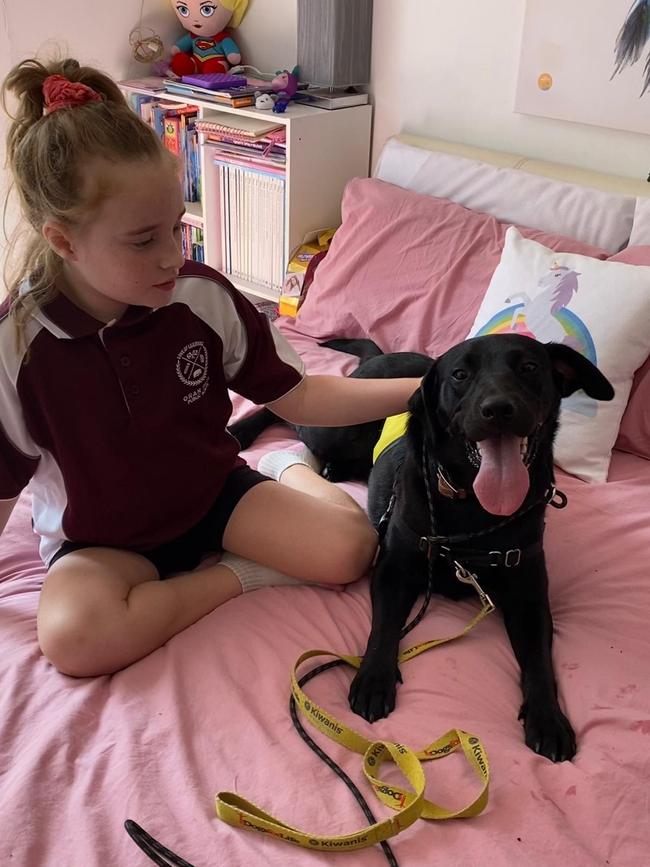Family in battle with NDIA over support service dog that warns of epileptic seizures
The family of a little girl with an aggressive form of epilepsy have been locked in a battle with the NDIA over a support dog that warns of seizures.

News
Don't miss out on the headlines from News. Followed categories will be added to My News.
The family of an Oran Park girl with the most aggressive form of epilepsy is locked in a battle with the National Disability Insurance Agency over a dog that can warn when she is about to have a seizure.
Indyana Wedderburn, 8, suffers from Lennox-Gastaut syndrome, one of the rarest and most dangerous forms of epilepsy which causes multiple and concurrent seizures.
She has had two major brain surgeries to relieve the condition.
For the past two years her family has been trying to get the NDIA to pay for a special breed of Labrador that barks a warning up to 15 minutes ahead of a fit.
The warning barks will alert her carers they need to get her into the recovery position so she doesn’t hurt herself.
Bizarrely NDIA is resisting paying for the dog even though it would actually save taxpayers money because it will get rid of the need for around-the-clock carers to be in their home.
Indyana’s mother Megan Wedderburn said the cost of the dog would total around $150,000 over its working life of eight years.
The family is currently funded for up to $400,000 of home care support from the NDIA, much of which would be saved if the canine was on the job.

“There’s nothing else that can give a prior alert that a seizure is about to happen — on average it’s about three to four minutes,” she said.
“The dog would be like a guide dog – it would go with her everywhere – it’s a fully qualified service dog.
The dog would be bred and trained by the Centre for Service and Therapy Dogs Australia in Melbourne.
The family has been arguing with the NDIA to pay for the dog for the better part of two years without luck.
She said they have had three conferences at AAT with the likelihood the case will go to a full contest later this year.
“They keep chopping and changing their reasons – I think I’m up to five now,” she said.
Ms Wedderburn said a canine companion would help her daughter’s independence by allowing her to play age appropriately as a child rather than having an adult side-by-side all the time in all settings including, home, school and the community.
“It will give her the privacy in her own bed to sleep independently of me, her mum, knowing the dog will alert us throughout the night of an oncoming event,” she said.
“Having a support worker sit at the end of her bed would forgo her privacy as well as the rest of our family in our home each and every single night.


“It is not a way to live and would have a vast impact on our mental health as a family as a whole.”
Dr Erica Jacobson, head of neurosurgery at Sydney Children’s Hospital, Randwick, who has operated twice on Indy, has written in support of the family’s bid for the dog because of the significant impact, improvement and benefit on her overall quality of life and that of her family’s too.
Government figures show the NDIA is spending more than $13 million a year fighting cases in the AAT with the median time for settlement of cases there 119 days, which does not include time spent on the agency’s internal appeals process.
Labor’s National Disability Insurance Scheme spokesman Bill Shorten described the case as “crazy” and “a bureaucratic nightmare”.
“They need to just give Indy her dog and save the taxpayer some money into the bargain,” he said.
An NDIA spokesman said it would be inappropriate to comment as the matter had been referred to the AAT.
“The agency will continue to work to ensure the family has disability-related supports that are reasonable and necessary,” he said.
Originally published as Family in battle with NDIA over support service dog that warns of epileptic seizures





